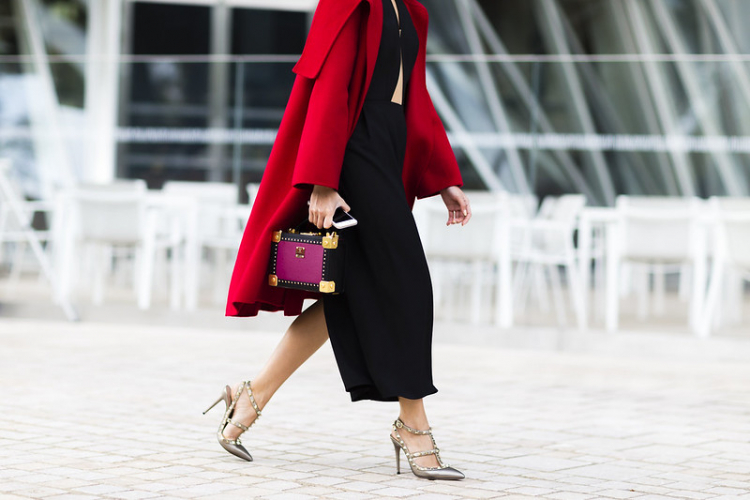Beyond the Catwalk: COVID-19 Looms Over a Muted Paris Fashion Week

The overall attitude surrounding Paris Fashion Week can be characterized as: the show must go on. Though the shows went on, both physically and digitally, there was a different feeling throughout the nine-day spectacle and a different feeling around Paris as a city. The mood was quiet, marked by the rainy, cold Paris weather and lack of attendees at the events due to both social distancing and travel restrictions in place.
Both the fashion presented in the collections and the Paris fashion scene felt toned down, deviating from the whimsical and lavish energy Paris Fashion Week has exuded since 1973. Less than half of the 84 brands showing Spring/Summer 2021 ready-to-wear collections chose to host in-person runway shows and presentations, and limited their guest lists to about 25 percent of a normal attendance according to Women's Wear Daily. Major French fashion houses such as Chanel, Dior, Louis Vuitton and Hermes followed tradition by hosting runway shows, though some of these designers were criticized for not showcasing the trendiest accessory of the season: the face mask.
As COVID-19 cases in France reached record numbers during Paris Fashion Week, both models and attendees were occasionally spotted not observing both government regulations and health recommendations, particularly at Chanel where guests were seen sitting alarmingly close together. Following his show at La Samaritaine, Louis Vuitton designer Nicolas Ghesquiere said in an interview, "it's important to be very creative in this moment, to bring energy to people, to show we're not afraid."
Afraid of the virus or afraid of the impact the pandemic has cast on the fashion industry? This particular fashion season is an extremely crucial indicator for the industry, particularly the luxury sector, thus contributing to the peculiar mood surrounding Paris Fashion Week. Brands globally and locally had to pivot when most of the world went into lockdown this past spring. Many major fashion houses converted their factories and ateliers to produce much-needed hand sanitizer and personal protective equipment.
Designers face a challenge in this unprecedented time of appealing to consumers, many of whom are still in lockdown or at least staying home more than ever, through their latest collections. Financial Times editor Lauren Indvik noted this shift in the Louis Vuitton collection. Though consistent with the renowned luxury brand's aesthetic, she described this season's collection as "vibrant, youthful and urban, but also comfortable enough to work from home in."
Designers are hopeful that the industry will recover, but limited fashion week attendance and Zoom presentations of collections present their own fundamental challenges, despite technological advances and adept creativity by the designers. "Not being able to see the clothes and feel the emotion can impact the way you feel about a collection," said Libby Paige, Net-A-Porter's Senior Fashion Market Editor, introducing another needed ally by the brands: the fashion editors and buyers.
Though they may appear as superficial, the shows, events, dinners and parties that take place during a typical fashion week carry weight in the successfulness of fashion, noting the necessity of human interaction and connectivity. As an art form, fashion is meant to be experienced through the senses and evoke emotion, which is particularly hard to do through a screen. It will be interesting to see how fashion weeks and the industry as a whole continues on, as it seems the pandemic and its lasting effects are far from being a distant memory.







